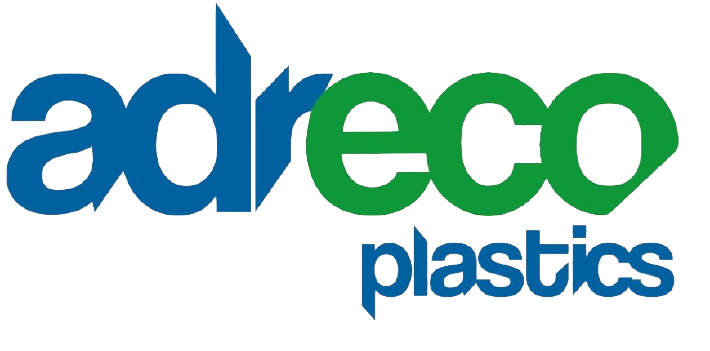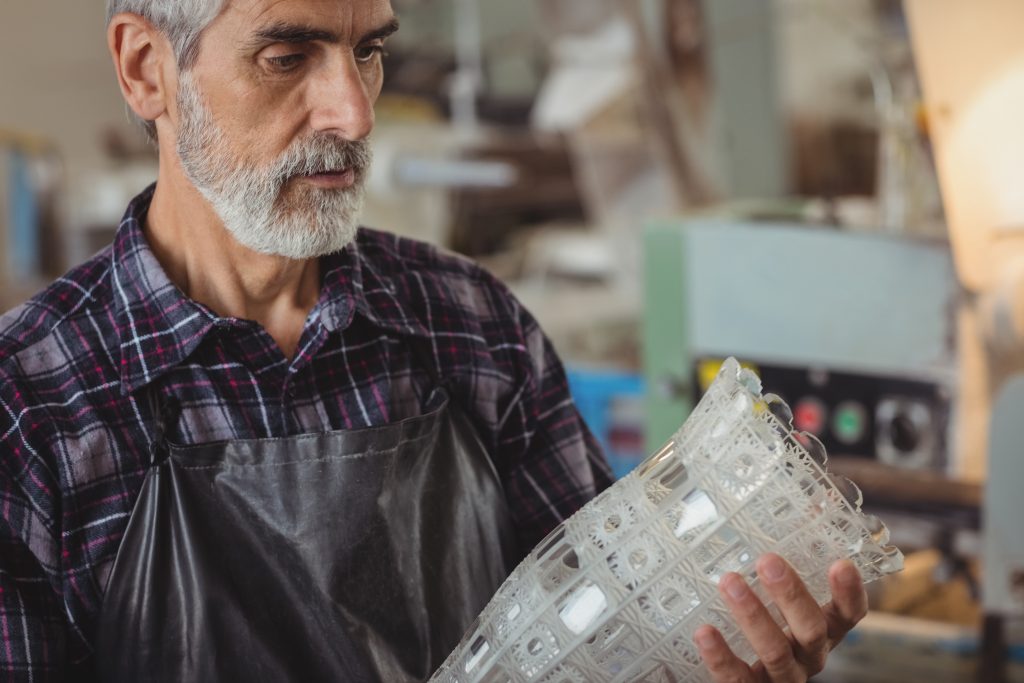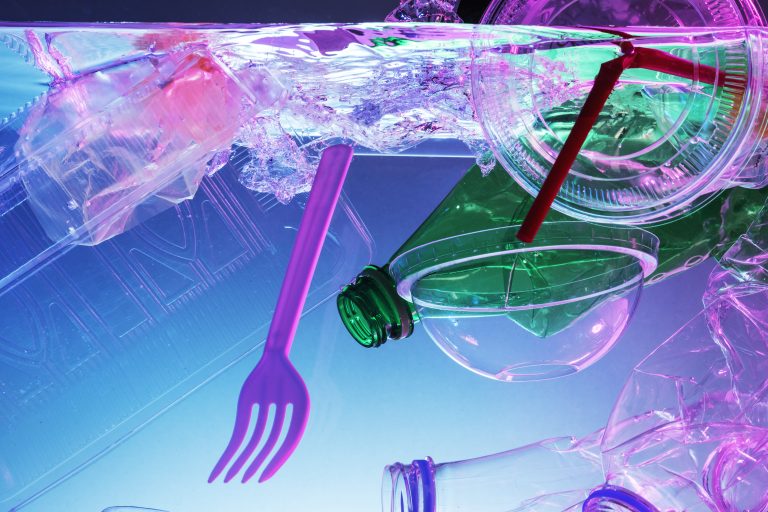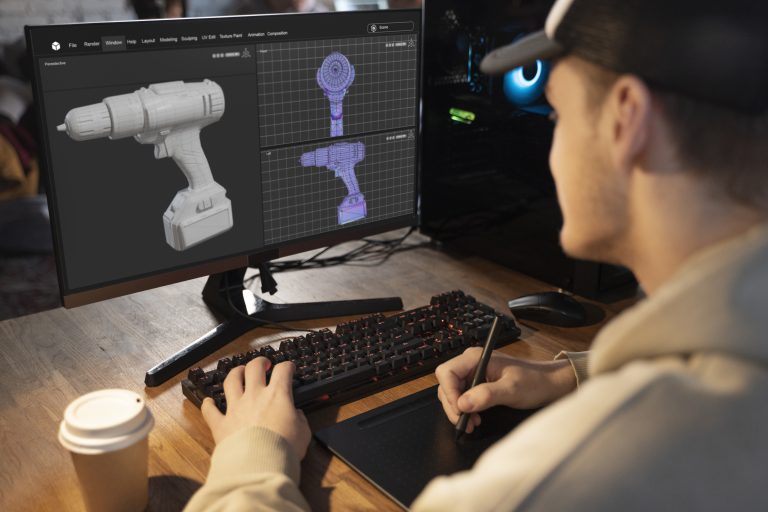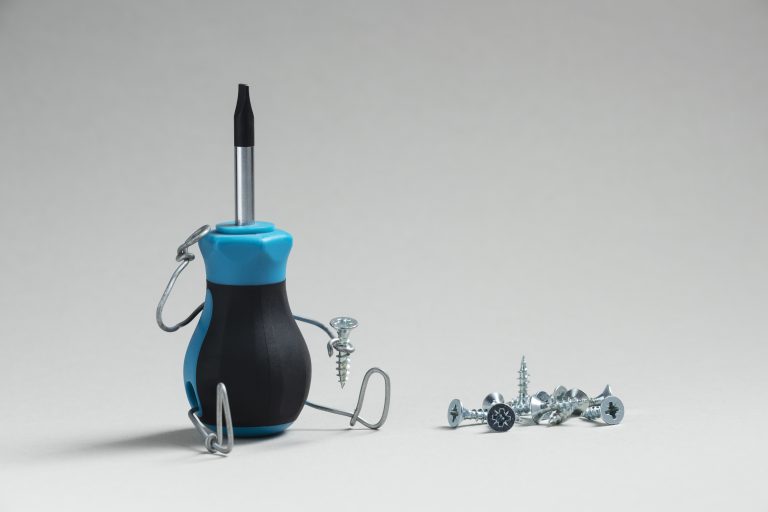Plastics make highly versatile, effective injection moulding materials and are a very popular option across a wide range of industries. These include retail packaging, textiles, food and beverage, electronics, healthcare devices and more. Plastic can be moulded into almost any shape or size and finished in multiple colours and textures. Customers can also add bespoke branding, text and designs and text easily and cost-effectively.
Plastic also offers other benefits to manufacturers, such as its light weight, easy maintenance, recyclability and hygienic properties. There are several different options when it comes to plastic selection. Each has its advantages and specific characteristics that make it suited to different applications.
Acrylonitrile Butadiene Styrene (ABS)
This strong plastic offers a clear alternative to glass and meets quality standards in both safety and looks. ABS is popular in the make-up and beauty industry for protective packaging that allows people to see the products inside. It can be made in a transparent form or in various colours to meet exacting branding requirements. ABS is good for pots, jars and containers that hold creams, lotions and waxes, as well as for children’s toys, such as plastic building bricks. ABS is also highly compatible with 3D printing methods.
High Density Polyethylene (HDPE)
HDPE is a thermoplastic material that derives from petroleum and has a large strength-to-density ratio. It is often used to make water and gas pipelines, as well as plastic containers for drinks, shampoo and bathing products, as well as dispensing pumps for skin creams and make up products. HDPE possesses excellent insulation qualities too, making it ideal for transporting frozen and chilled goods to keep them at a consistent temperature during transit.
Low Density Polyethylene (LDPE)
LDPE is another widely used thermoplastic that is sourced from petroleum. It is flexibility and can be stretched and shaped extensively without breaking. Common uses for LDPE include plastic shopping bags, bin liners, food trays, computer components and plastics solutions for flooring. Its light weight and smooth surface finish make it easy to keep clean and hygienic.
Polyethylene Terephthalate (PET)
PET is one of the most commonly used injection moulding materials and often top of the list for plastics selection. It is suitable for making plastic bottles, jars and containers for foods and drinks. PET offers an attractive finish, a strong, hygienic structure and is particularly effective for taking designs, texts and logos to produce branded products that stand out on the shelves of any retail outlet.
Polymethyl Methacrylate (PMMA)
This useful plastic polymer gives off a transparent quality after it has been injection moulded, rendering it a safer alternative to glass. PMMA is also referred to as acrylic, Perspex, or Plexiglass The tough material is extensively employed in retail and commercial applications to make display cases, advertising materials and clear, rigid packaging that protects and shows off their contents. Additionally, PMMA is used to make glasses and contact lenses, along with various optical instruments. It comes in both sheet form or custom injection moulded shapes in order to meet a wide range of customer requirements.
Polypropylene (PP)
This is another adaptable plastic polymer used for plastic packaging films and labels. It has a low-friction surface and hygienic finish that helps protect sterile and sensitive contents, such as food items and medical supplies, from contamination. The textiles industry often opts for PP to manufacture rug and carpet fibres. When it is produced in its rigid version, PP is used for household products like washing up bowls, microwavable dishes and kitchen utensils.
Polystyrene
This is another of the most popular plastics solution out there, widely used as packaging for fragile items such as electronics, ceramics or glassware. Additionally, polystyrene is often used to make disposable cups and single-use medical instruments. Polystyrene is light in weight, yet resilient against sudden impacts. It is similar to other polymers, in that it can be easily moulded into different shapes and sizes, however complex.
Polyvinyl Chloride (PVC)
Commonly known as PVC, polyvinyl chloride is a synthetic plastic polymer that is known for its flexibility and strong resistance to solvents and chemicals. versatility. It comes in various forms, including the soft, pliable version prized in packaging for food and beverages, textiles, vinyl signs and labels. PVC offers very good insulating properties, making it suitable to cover and protect copper wiring in electronics. In its hard form, PVC is suited to drink bottles, toys and plastic pipework.
